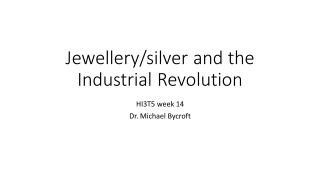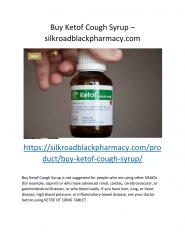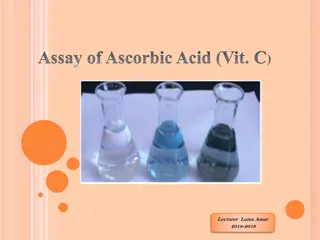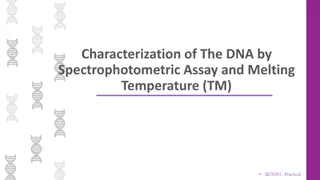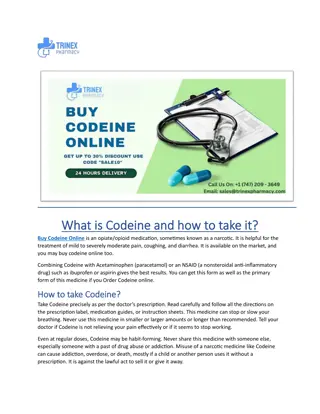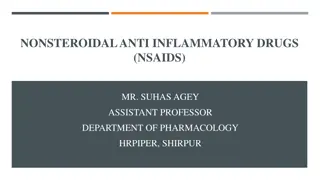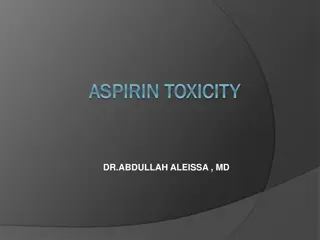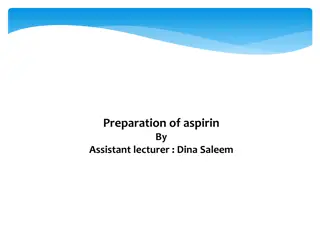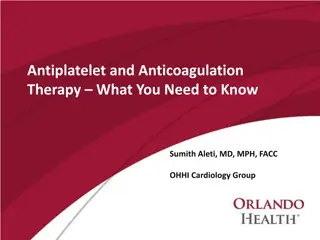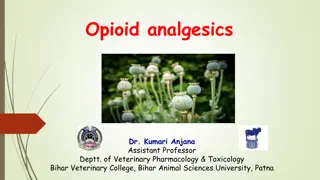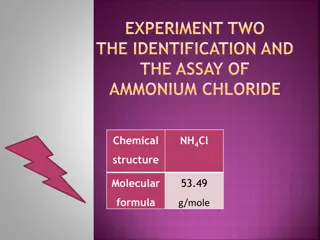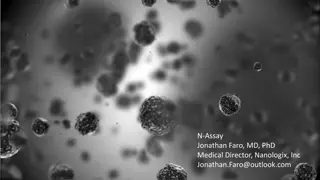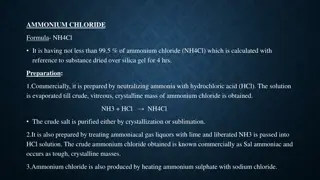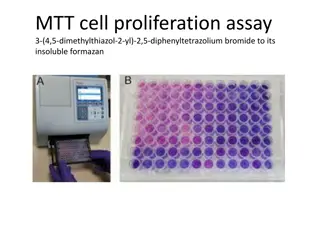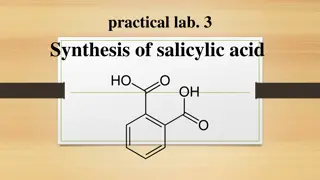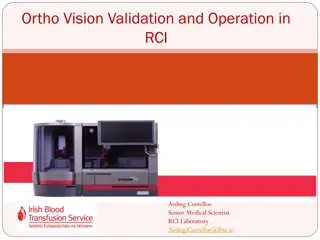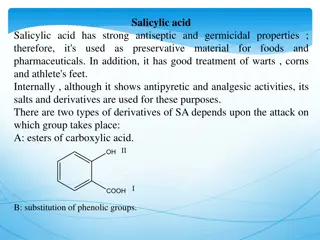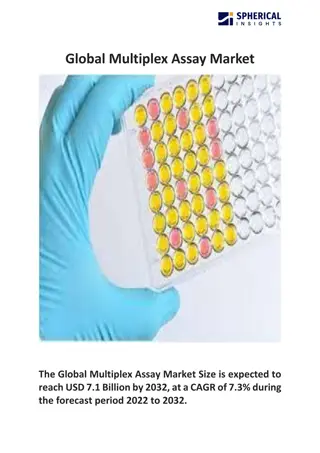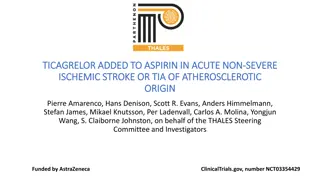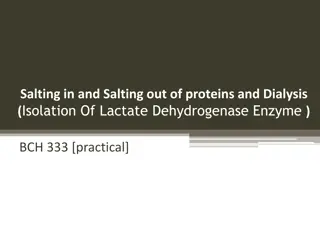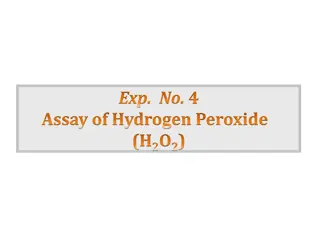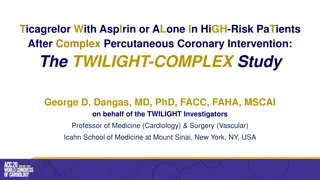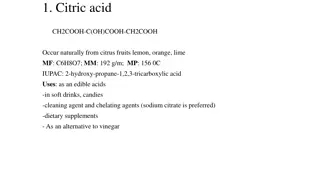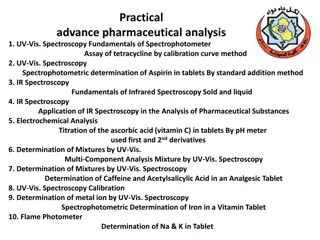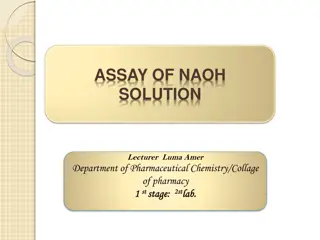Jewellery/silver and the Industrial Revolution
Explore the historical connection between silver craftsmanship and the Industrial Revolution. Discover the regulations, assay offices, and technological advancements that shaped the jewelry industry.
0 views • 5 slides
Buy Ketof Cough Syrup - silkroadblackpharmacy.com
Buy Ketof Cough Syrup is not suggested for people who are using other NSAIDs (for example, aspirin) or who have advanced renal, cardiac, cerebrovascular, or gastrointestinal illnesses, or who bleed easily. If you have liver, lung, or heart disease, high blood pressure, or inflammatory bowel disease,
2 views • 3 slides
Understanding Alinity i STAT High Sensitivity Troponin-I for Cardiovascular Diagnosis
Alinity i STAT High Sensitivity Troponin-I is a proprietary assay used in diagnosing myocardial infarction (MI) by quantitatively measuring cardiac troponin I in human plasma. This chemiluminescent microparticle immunoassay (CMIA) aids in the detection of MI, a significant aspect in managing heart d
2 views • 30 slides
Aspirin Assay by Direct Acid-Base Titration Experiment Overview
Exploring the process of assessing aspirin purity through direct acid-base titration using sodium hydroxide as a standard solution. The experiment includes details on aspirin properties, dosage, acidity, decomposition, and metabolism. Key aspects covered include the aim of the experiment, the princi
5 views • 15 slides
Assay of Ascorbic Acid (Vitamin C) - Method and Procedure
Ascorbic acid, known as Vitamin C, is a crucial organic compound with antioxidant properties. This article discusses the assay of ascorbic acid using a redox titration method with potassium iodate and iodide. The principle, procedure, and calculations involved in determining the concentration of Vit
1 views • 8 slides
IVD Contract Manufacturing Services Market - Global Opportunity Analysis and Ind
IVD Contract Manufacturing Services Market by Type (Assay Development, Manufacturing), Category (Reagents, Systems), Technology (Immunoassay, Molecular Diagnostics, Clinical Chemistry, Hematology, Microbiology, Urinalysis) \u2013 Global Forecast to 2031\n
4 views • 4 slides
Comprehensive DNA Characterization Methods in Molecular Biology
Explore the various techniques involved in the characterization of DNA, including spectrophotometric assay, melting temperature determination, quantitative and qualitative analyses, DNA purity assessment, GC content calculation, and DNA denaturation processes. Learn how to determine DNA concentratio
0 views • 12 slides
What is Codeine and how to take it ???
Buy Codeine Online is an opiate\/opioid medication, sometimes known as a narcotic. It is helpful for the treatment of mild to severely moderate pain, coughing, and diarrhea. It is available on the market, and you may buy codeine online too. Combining Codeine with Acetaminophen (paracetamol) or an NS
1 views • 4 slides
Understanding Nonsteroidal Anti-Inflammatory Drugs (NSAIDs) and Their Pharmacology
Nonsteroidal anti-inflammatory drugs (NSAIDs) are a class of analgesic, antipyretic, and anti-inflammatory medications that work by inhibiting prostaglandin synthesis. They provide relief from pain, reduce fever, and combat inflammation through various mechanisms. Aspirin, a commonly used NSAID, irr
0 views • 21 slides
Understanding Aspirin Toxicity: Overview and Management
Aspirin toxicity, though decreasing in incidence, can still result in severe consequences such as metabolic acidosis, seizure, and even death. This condition is often underestimated due to lack of familiarity with its clinical presentation. Treatment focuses on maintaining salicylate in the ionized
0 views • 22 slides
Preparation of Aspirin: Overview and Synthesis Methods
The preparation of aspirin involves the synthesis of 2-acetyl salicylic acid, known for its therapeutic uses as an analgesic, antipyretic, and anti-inflammatory agent. This process includes the detailed characteristics, stability, mechanism, and synthesis methods of aspirin. Important considerations
0 views • 12 slides
Understanding Antiplatelet and Anticoagulation Therapy in Cardiology
This informative content covers the current practice guidelines and medication options for antiplatelet therapy in CAD patients, discussing different medications, optimal duration of therapy, CV risk assessment, and anticoagulation options in atrial fibrillation. It delves into the role of aspirin i
0 views • 31 slides
Understanding Statistical Tests: Levene's Test vs. T-Test
Levene's test for equality of variances helps determine if the assumption of equal group variability in a t-test is met. When the result is not significant (p > 0.05), it indicates equal variances. Conversely, the t-test assesses differences between group means. Two examples are provided: one with S
0 views • 4 slides
Understanding Opioid and Non-Opioid Analgesics in Pain Management
Opioid analgesics, such as morphine, act in the central nervous system to relieve pain without affecting consciousness. They differ from non-opioid analgesics like aspirin in terms of CNS depression, pain type targeted, and addiction potential. Pain is a protective mechanism caused by tissue damage
0 views • 25 slides
Identification and Assay of Ammonium Chloride: Experiment Insights
Explore the identification and assay process of Ammonium Chloride (NH4Cl), a weak inorganic acid commonly used in various applications. Discover its chemical properties, synthesis, reactivity, identification tests, and details of a titration process using NaOH and phenolphthalein as indicators.
0 views • 16 slides
Revolutionary N-Assay: Transforming Pathogen Detection in Healthcare
Innovative N-Assay developed by Jonathan Faro, MD, PhD, offers a faster, more accurate, and cost-effective solution for detecting bacterial pathogens in healthcare settings. Unlike traditional assays, N-Assay differentiates between viable and non-viable pathogens, provides information on antibiotic
1 views • 15 slides
Overview of Ammonium Chloride: Properties, Preparation, and Uses
Ammonium Chloride, with the formula NH4Cl, is a compound containing not less than 99.5% NH4Cl. It is prepared commercially by neutralizing ammonia with hydrochloric acid or treating ammoniacal gas liquors with lime. The compound is essential for maintaining acid-base equilibrium, acts as an expector
2 views • 4 slides
MTT Cell Proliferation Assay: Protocol and Applications
The MTT cell proliferation assay is a widely used technique to measure cell viability, proliferation, and cytotoxicity in research. This colorimetric assay involves the conversion of MTT reagent to formazan dye by live cells, resulting in a purple color change. This comprehensive guide provides step
0 views • 8 slides
Synthesis of Salicylic Acid: Theory, Derivatives, and Applications
Salicylic acid is synthesized from methyl salicylate through ester hydrolysis with aqueous alkali. It is a versatile compound used in organic synthesis, as a plant hormone, and derived from salicin metabolism. The derivatives of salicylic acid can minimize gastric disturbances and enhance therapeuti
4 views • 12 slides
Ortho Vision Validation and Operation in RCI
Role of RCI laboratory, analyser requirements, validation process, installation verification, and PQ testing for Ortho Vision system. The RCI laboratory plays a crucial role in various testing processes including blood grouping, antibody ID, and compatibility testing. Validation process includes URS
0 views • 17 slides
Overview of Salicylic Acid and its Derivatives
Salicylic acid is known for its antiseptic, germicidal, and analgesic properties, used in various applications such as preservatives, wart treatments, and pain relief. Different derivatives of salicylic acid are developed to minimize side effects and enhance efficacy. Acetyl salicylic acid (ASA), co
0 views • 15 slides
Global Multiplex Assay Market
The Global Multiplex Assay Market Size is expected to reach USD 7.1 Billion by 2032, at a CAGR of 7.3% during the forecast period 2022 to 2032.\n\n
1 views • 7 slides
Ticagrelor Added to Aspirin in Acute Non-Severe Ischemic Stroke or TIA of Atherosclerotic Origin
Among patients with transient ischemic attack (TIA) or minor ischemic strokes, adding ticagrelor to aspirin has shown superior efficacy in preventing stroke or death, particularly in those with ipsilateral atherosclerotic stenosis. The THALES trial demonstrated that ticagrelor added to aspirin was m
0 views • 14 slides
Assay of Aspirin by Indirect Acid-Base Titration
Indirect titration, also known as residual titration, is an analytical technique used to determine the weight of an unknown sample by employing excess standard solution. In the case of aspirin, which is a weak acid undergoing slow hydrolysis, back titration with NaOH and HCl is utilized to overcome
1 views • 13 slides
Detection of Mutations in EGFR in Circulating Lung Cancer Cells: Study on SARMS Assay and CTC-Chip
This study by Shyamala Maherswaran, Ph.D., and team focuses on characterizing mutations in EGFR in circulating tumor cells using SARMS assay and CTC-chip. The research investigates the effectiveness of these non-invasive methods in analyzing tumors and explores the role of the T790M mutation in resp
0 views • 12 slides
Protein Isolation Techniques: Salting In and Salting Out
Proteins exhibit varying solubility based on salt concentrations, with salting in increasing solubility and salting out causing precipitation. This practical involves isolating lactate dehydrogenase enzyme using salting in, salting out, and dialysis techniques, as well as assessing purity through ac
0 views • 19 slides
Unveiling Recent News Highlights: Jon Gruden Resigns, Aspirin Usage Guidance, and More
Former football coach Jon Gruden resigned amid controversy over offensive emails, a U.S. panel advised against routine aspirin use, data shows risks for unvaccinated elders, a Maryland couple faces charges for selling U.S. secrets, the Port of Savannah faces container congestion, and Congressional D
0 views • 14 slides
Assay of Hydrogen Peroxide (H2O2) - Experimental Study
Hydrogen peroxide (H2O2) is a weak acid with both oxidant and reductant properties. It is an unstable compound that decomposes into oxygen and water. This experiment involves titrating hydrogen peroxide against a standard oxidizing agent solution to determine its concentration. The physical and chem
0 views • 9 slides
Understanding Women's Health: Risks, Prevention, and Care
Women's health encompasses the screening, diagnosis, and management of diseases and conditions affecting physical and emotional well-being. Services are provided by a diverse team of healthcare professionals specializing in obstetrics, gynecology, surgery, and primary care. Cardiovascular disease is
0 views • 46 slides
Ticagrelor Monotherapy vs. Ticagrelor + Aspirin in High-Risk PCI Patients: TWILIGHT-COMPLEX Study
Patients undergoing complex PCI are at high risk of ischemic events. The TWILIGHT-COMPLEX study aims to compare the safety and efficacy of ticagrelor monotherapy versus ticagrelor with aspirin in patients who completed 3 months of DAPT post-PCI. While extended DAPT may reduce ischemic events, it als
0 views • 27 slides
Understanding Medication Assisted Treatment (MAT) for Addiction
Medication Assisted Treatment (MAT) combines medications with counseling and therapies to treat substance use disorders. This approach challenges historical biases and stigma around addiction, offering effective options like Methadone, Naltrexone, and Buprenorphine for opioid addiction. Despite bias
0 views • 16 slides
Understanding Anticoagulants: Mechanisms, Indications, and Limitations
Anticoagulants play a crucial role in preventing blood clotting and are used in various medical conditions such as myocardial infarction and deep venous thrombosis. They include heparin, warfarin, and antiplatelet agents like aspirin. This article explores the mechanisms of action, indications, and
0 views • 29 slides
Nonparametric Tolerance Interval Approach to Immunogenicity Assay Cut Point Determination
This content discusses the importance of determining the cut point for immunogenicity assays to detect anti-drug antibodies (ADA) in large-molecule therapeutics. It highlights the need for well-developed and validated assays to ensure drug efficacy and safety. The approach involves multiple-tiered v
0 views • 26 slides
Preparation of Aspirin: Synthesis and Safety Guidelines
Aspirin, derived from salicylic acid, is synthesized by reacting salicylic acid with acetic anhydride using a catalyst such as sulfuric acid. The product is purified through recrystallization. Safety precautions must be taken due to the hazardous nature of the chemicals involved. The procedure invol
0 views • 12 slides
Common Organic Acids and Their Uses in Various Industries
Citric acid, lactic acid, salicylic acid, and tartaric acid are natural acids found in various fruits. They have diverse applications in food and beverage, pharmaceutical, and cosmetic industries. These acids are used for flavoring, cleaning, as food additives, and in the preparation of various prod
0 views • 4 slides
Practical Advances in Pharmaceutical Analysis Using Spectroscopy Techniques
This comprehensive guide covers various spectroscopy techniques, including UV-Vis and IR spectroscopy, as well as electrochemical analysis and flame photometry, for pharmaceutical analysis. It delves into the fundamentals of molecular spectroscopy, discussing electromagnetic radiation, quantum energ
0 views • 19 slides
Understanding Acute Coronary Syndrome: Diagnosis and Immediate Therapies
A 58-year-old man presents with acute severe chest pain, diaphoresis, dyspnea, and risk factors for coronary heart disease. The most likely diagnosis is acute myocardial infarction. Immediate steps include placing the patient on a cardiac monitor, obtaining an ECG, and administering aspirin. Additio
0 views • 19 slides
Analyzing Ibuprofen Tablets: Experiment, Properties, and Testing
Ibuprofen, a non-steroidal anti-inflammatory drug, is examined through experiment, physiochemical properties, dosage forms, synthesis, and assay testing. Its identification tests include melting point, UV absorption, IR spectrum, and TLC analysis. The assay test method involves weighing and processi
0 views • 22 slides
Assay of NaOH Solution - Lab Procedure for Determining Sodium Hydroxide Content
This essay discusses the assay of NaOH solution, focusing on the two-step titration process involving NaOH and HCl for determining the concentration of NaOH. Detailed procedures, chemical factors, and calculations for both titration steps are explained in depth. The analysis also includes the ration
0 views • 10 slides
Exploring the World of Esterification: Aromatic Fragrances to Pharmaceutical Applications
Esterification is a versatile chemical process that yields compounds with pleasant odors and diverse applications, from fragrances like banana and peppermint to pharmaceuticals like local anesthetics. The process involves reactions such as Fischer Esterification and Schotten-Baumann Esterification,
0 views • 21 slides
